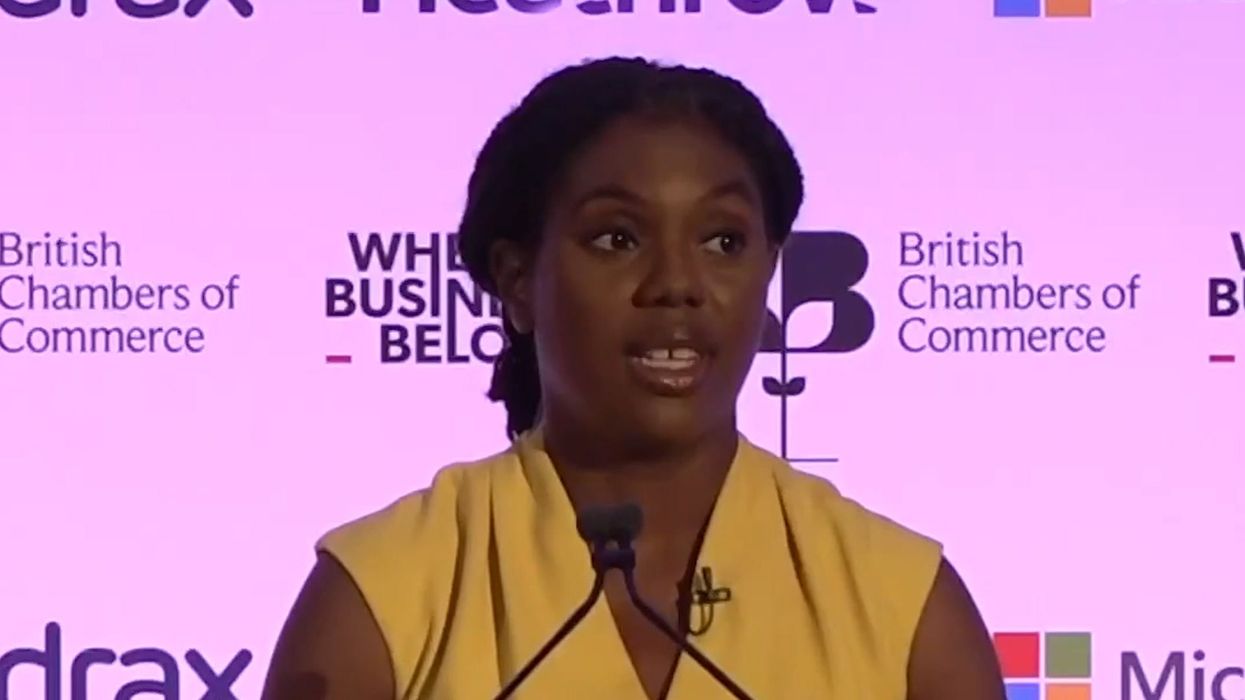Politics
Liam O'Dell
Sep 03, 2024
Related video: Kemi Badenoch vows she will 'never shut up' about 'divisive agenda of identity politics'
PA
In the same week that Tory leadership candidates are outlining their visions for the next phase of the Conservative Party and talking about the UK’s “proud history”, research has revealed that in fact, fewer Brits have pride in their country’s history compared to a decade ago.
The National Centre for Social Research’s (NatCen) latest chapter in their report on “British social attitudes” – which draws upon a survey comprising more than 5,500 interviews with a random sample of UK adults – found just under two-thirds of people (64 per cent) are proud of Britain’s history, compared to 86 per cent back in 2013.
Only seven per cent in 2023 disagree or strongly disagree that "there are some things about Britain today that make me feel ashamed", as opposed to 10 per cent in 1995.
It also revealed that those who see themselves as having a “civic” understanding of national identity (that is, that someone becomes a member of a country by upholding shared values or showing respect to political institutions) are less likely to be proud of Britain’s past than those with an “ethnic” understanding of national identity (a focus on birth and ancestry).
However, NatCen also reports that both the percentage of people who consider it important that a British person is born in Britain, and who believe it’s important a person has British ancestry, have decreased – to 55 per cent and 39 per cent respectively.
Meanwhile, against the backdrop of the recent Olympic Games and the ongoing Paralympic Games, most Brits still take pride in the UK’s cultural and sporting achievements, with 79 per cent being proud of the country’s success in arts and literature, and 77 per cent saying the same when it comes to sports.
The stats are despite those vying to succeed Rishi Sunak as Conservative Party leader celebrating the supposedly “proud history” of the UK and slamming those who 'trash talk' Britain.
Kemi Badenoch, the former business secretary, outlines on her Renewal 2030 website that her campaign is “proud of our history”, and rejects “attempts to force us into identity groups”.
Robert Jenrick, the ex-immigration minister, talked about the people of Newark who “shaped my politics” in his campaign launch speech, saying they are “proud of our history” and would “never denigrate our country”.
“This is a great country, with a proud history,” he added.
Meanwhile Priti Patel, who served as home secretary under Boris Johnson’s government, said in her launch speech that “while Labour are trash-talking Britain for their own, desperate means, I see a proud and resilient country”.
The lineup of six is completed by ex-work and pensions secretary Mel Stride, former security minister Tom Tugendhat, and shadow foreign secretary James Cleverly.
Commenting on the findings, NatCen’s deputy chief executive Gillian Priar said it shows Britain has “become more inclusive in its attitudes towards what it means to be British”.
“These research findings show that whilst we are less likely to take pride in British history and more critical about its politics, there is still a great deal of national pride in the country’s cultural and sporting achievements.
“This change in attitudes may have been influenced by the increased diversity and shared citizenship within Britain, presenting a portrait of a nation redefining itself,” she said.
Sign up to our free Indy100 weekly newsletter
How to join the indy100's free WhatsApp channel
Have your say in our news democracy. Click the upvote icon at the top of the page to help raise this article through the indy100 rankings.
Top 100
The Conversation (0)














